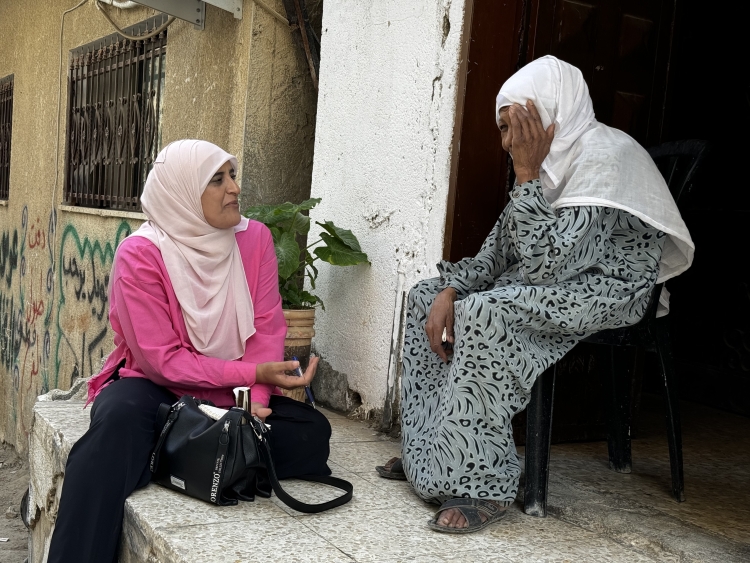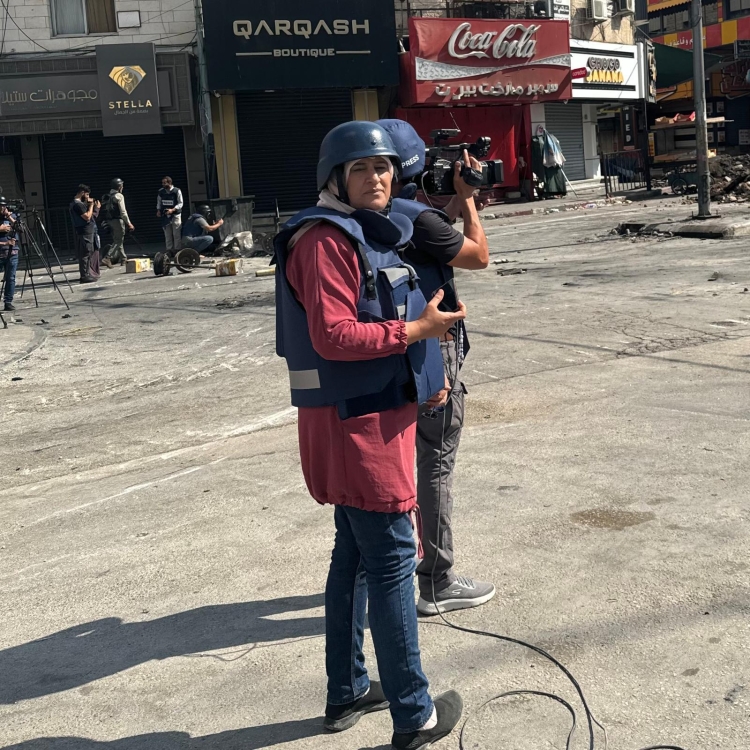This story is part of a series on ICFJ Jim Hoge Reporting Fellows. Read additional stories here and here.
“The relentless news cycle in the West Bank consistently overshadows more in-depth coverage,” says Aziza Nofal, a Palestinian freelance journalist and an ICFJ Jim Hoge Reporting Fellow. Nofal, through her fellowship, conducted a months-long investigation into the shortage of aid for refugees living in West Bank refugee camps.
When Nofal was covering Israeli incursions into West Bank refugee camps for outlets like Al Jazeera, she observed a lack of support from Palestinian authorities. “As the incursions became more frequent,” she said, “public criticism grew louder regarding this negligence by both the Palestinian government and UNRWA [United Nations Relief and Works Agency for Palestine Refugees in the Near East].”

Nofal’s report follows families whose homes were destroyed and who now live in overcrowded shelters with poor conditions, including contaminated water and lack of electricity. According to Nofal’s investigation, 45,000 refugees have been displaced from the three refugee camps she looked into, which have faced over 200 attacks over the past two years. Despite the Palestinian government’s promises, displaced families report receiving minimal aid, Nofal found.
Nofal, who interviewed over 50 sources for the story, faced significant obstacles during her investigation, from the Palestinian government and UNRWA’s lack of cooperation to dangerous reporting conditions. “Compounding the situation was the fragmentation of the West Bank by checkpoints, severe movement restrictions, and the targeting of journalists by Israeli forces,” Nofal says. Navigating checkpoints to reach the areas central to the story became a risk to her safety, and Nofal had to find a way to report from afar.

Nofal says the Jim Hoge Fellowship was vital to reporting the story. “As an independent correspondent, I would not have had the resources or capacity to undertake this kind of coverage without the fellowship’s support,” she said, adding that the piece “provides a deeper narrative than typically covered by local, Arab and international media.”
The Jim Hoge Reporting Fellowships honor former ICFJ Board chairman and venerated editor James F. Hoge Jr., who passed away in 2023. The initiative supports rising news leaders in the U.S. and abroad, helping the next generation of journalists safely and effectively report on pressing global issues.